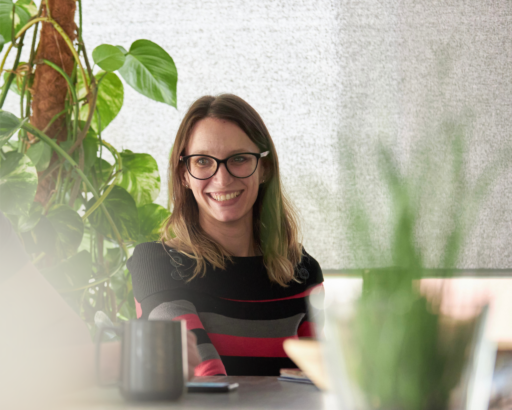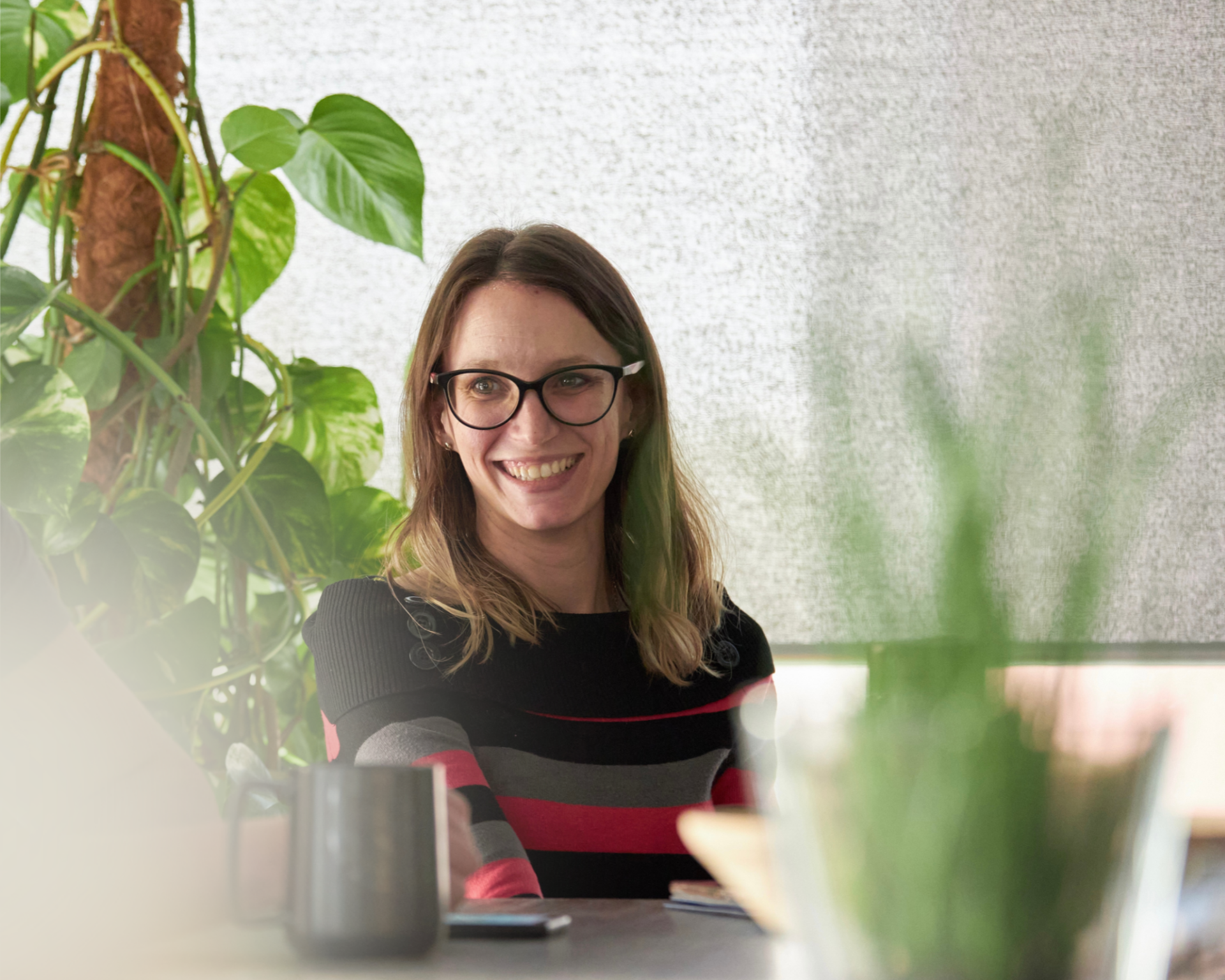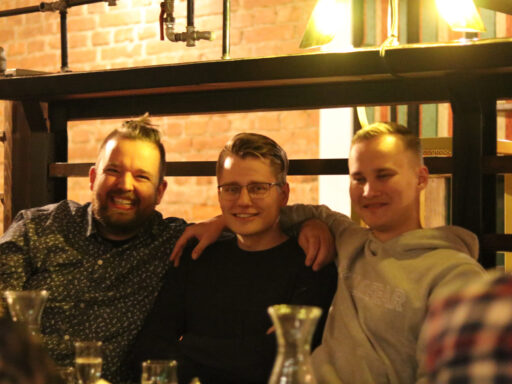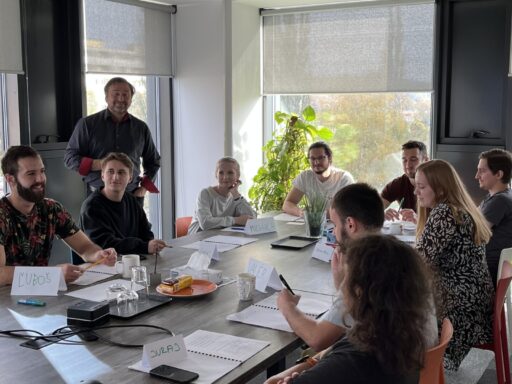“I’m going to take a tester course!” – a sentence that literally changed Aďka’s life. When she approached us less than three years ago, the world of software development was still a great unknown to her. However, she had something much more important than years of practice – determination and huge motivation to work on herself. Today, she’s responsible for testing an eHealth application on an international project and successfully tears down all the myths about doors to IT being open only to people with technical education. What helped her along the way and how did she cope with the biggest challenges?

I’ll start with maybe an unusual question: What did you want to be when you were little?
Gradually, from a princess, a teacher, a doctor, a waitress to a lawyer. To this day, however, I’d immediately go work as a spy or a pirate (but only in the Caribbean😀).
That’s quite a wide range 🙂 However, your career path took a more technical direction, until you finally “found” yourself in the role of a tester. When did you become interested in testing as such?
I learned about the work of a tester in my previous job. But I really started to be interested in it only during maternity leave, when I started to think about what to do next. I realized that the American working time, in which I’d been working until then, simply wouldn’t suit me for family reasons. I was particularly interested in testing because it was close to my previous work. That’s why I researched multiple options, browsed job ads, and looked for other people’s personal experiences, until I decided to go for it.
The fear of the unknown also comes with a career change, which often discourages people from taking this step. However, you chased your own way and successfully worked your way up to the position of a software tester. What was your “driving force”?
I wanted to find something that I’d enjoy, that would be flexible enough at the same time and that would fit into family life. I like to try new things and rarely stop doing something. 😀
I feel that even if it doesn’t work out, something else and new will surely come again. At the time I took my first courses, of course, I felt insecure. However, my husband played an important role in the whole process, as he supported me in my decision and was very helpful during this period. From my point of view, it’s the support of loved ones that’s really crucial in terms of a career change.
In the team, you’re involved in testing the Belgian eHealth application Crossuite. How do you remember your early days as a tester?
It was a long time ago, but I remember that at the beginning it was really difficult to even understand what a bunch of programmers were saying. A lot of abbreviations, unfamiliar expressions, programming jargon. And the Crossuite app itself, it’s a complicated system that you won’t understand in a day or even a week. I remember that I was under tremendous stress the first day. There were a lot of changes for me at once. But they were all amazing and very helpful from the beginning and the fear gradually subsided.

How do you rate this decision over time?
Even after two and a half years, I still rate the decision to join Bart as the best I could have taken. I like my job. There’s always something going on and changing, so there’s certainly no risk of boredom 😀.
Of course, as everywhere, there are more difficult moments, but I certainly wouldn’t change it.
What do you enjoy the most and the least about this job?
What I enjoy the most is probably the analytical part – inventing, writing and then testing test scenarios, as well as testing new functionalities. And what I probably enjoy the least is when I have to do it 100 times in a row, because something’s still not working 😀.
Do you think it’s easier for colleagues with technical education at work?
They certainly have a head start in terms of different terms, technologies used and better knowledge of code. But each coin has 2 sides. I may look at it more from the point of view of the customer and the end user, which is also very beneficial when testing.
And how are you affected by the predominantly male team in which you work?
I like my colleagues and I think I’ve gotten so used to this group that I wouldn’t change it. It’s always fun and, fortunately, they also take me as a part of the team and don’t make any differences (although even this can be a double-edged sword 😂).

Have you ever encountered the amazement of your friends when they learned that you work in IT?
I think that nowadays it’s no surprise, especially in Košice, as the industry is very widespread here and several of my friends work at various positions in IT companies. It’s more difficult to explain my work to my family and especially to its older members.
You made the decision to change careers during maternity leave. This required (and probably still requires) good organization and multitasking. What helps you manage all your responsibilities?
I always had things planned and pre-prepared. However, with the arrival of children, I began to realize that no matter how much time I invest in it, life can have completely different plans. The key to success is to adapt to new circumstances, react to changes quickly, manage about 100 things at once, and even laugh about it all :).
Managing a family, working full-time and carving out time for yourself must definitely be hard work. Do you have a “secret recipe” to maintain a work-life balance?
Well, I’m not sure I’m keeping the balance right myself. But my family always comes first. I also try to delegate things. For example, in the case of illnesses, grandparents come on the scene and they’re amazing and always willing to help. Sometimes it’s really difficult to combine all commitments or after school activities with my and my husband’s work responsibilities. Fortunately, my work is flexible enough and some things can be done outside of normal working hours.
Amongst it all, do you have time for yourself? What do you do when you are “granted” some time off? 🙂
I like to read, we go skiing now in winter (alone, with colleagues and even with my family) and skating, and I very much like to travel and organise our trips. Last year, I also went for a relay run, and that also took time to prepare.

Recently, you led a lecture under the auspices of the Women’s Algorithm association, where you talked about your testing experience to more than 25 women as the main speaker. How would you rate this experience over time? What do you see as the benefits of such events?
Lenka from the Women’s Algorithm approached me through our Scrum Master Mirka. And since I rarely say no to new challenges, of course I also went for this one. I’ve never given a lecture in front of a large number of unknown people before, so I was quite stressed, but it was a good experience, and I certainly don’t regret it. I’ve found that while it’s difficult to stand up in front of people and talk, it’s certainly not impossible.
The series of lectures was designed specifically for women who are considering a career change or want to move somewhere. I imagined how motivated I was to see and hear the women who succeeded in it when I was planning it. I think that these lectures are mainly about motivation and some inner encouragement.









